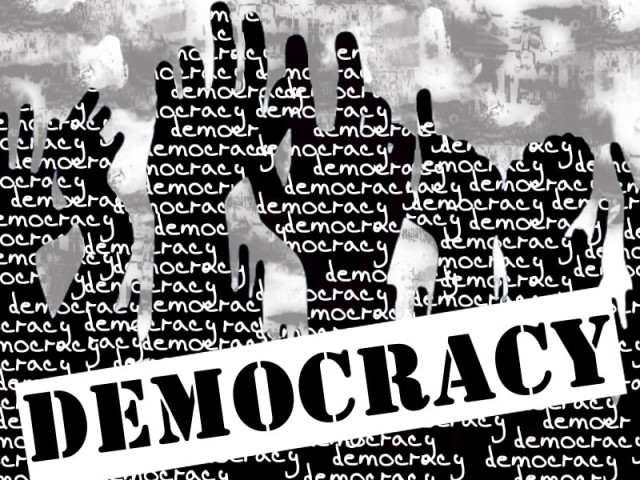Participatory democracy: Poverty alleviation linked to devolution of power
UNDP assures support in four key areas in strengthening democracy.

A three-day international conference on Participatory Federalism and Decentralization: From Framework to Functionality was held recently. DESIGN: SUNARA NIZAMI
Parliamentarians, international and local experts were unanimous in highlighting the importance of participatory federalism and vowed to support and strengthen devolution process.
They linked poverty alleviation to implementation of 18th Constitutional Amendment and participation of people at local level.
Participants welcomed a number of recommendations made by the panelists saying the day-long session was a good effort to engage international and national players on the decentralization process with focus on the 18th amendment.
Addressing the participants of a three-day international conference on “Participatory Federalism and Decentralization: From Framework to Functionality”, veteran politician and Pakhtunkhwa Milli Awami Party chief, Mahmood Khan Achakzai appreciated the efforts in initiating a debate on various practical aspects of 18th amendment and described it a landmark achievement towards empowering the people of Pakistan and emphasised its implementation in letter and spirit.

United Nations Development Programme (UNDP) Country Director Marc-André Franche said, “Implementation of the 18th amendment will determine Pakistan’s capability to fight poverty and inequality.”
In his concluding remarks, he said that by bringing together a number of national and international experts, UNDP has managed to create a platform with a pivotal role of providing a knowledge base on federalism and decentralization issues. It has set a research agenda for years to come, he added.
Franche assured his organization’s support in four different areas in strengthening institutions such as the Council of Common Interests in managing the federation.

The UN body will support the local governments in terms of drafting laws and their implementation. He also pledged to continue playing as supporting role in dissemination of knowledge and arranging debates that would engage donors and secure support in future.
“This is our starting point and, like any democracy, we need more debates and dialogues,” he said.
While presenting the highlights of the conference, Gujrat University Vice-Chancellor Dr Nizamuddin said unless local government and bureaucrats are provided incentives, they will shy away from their responsibilities.
He added that his university will draft a report based on the conference’s recommendations before November.
Published in The Express Tribune, September 28th, 2013.



















COMMENTS
Comments are moderated and generally will be posted if they are on-topic and not abusive.
For more information, please see our Comments FAQ